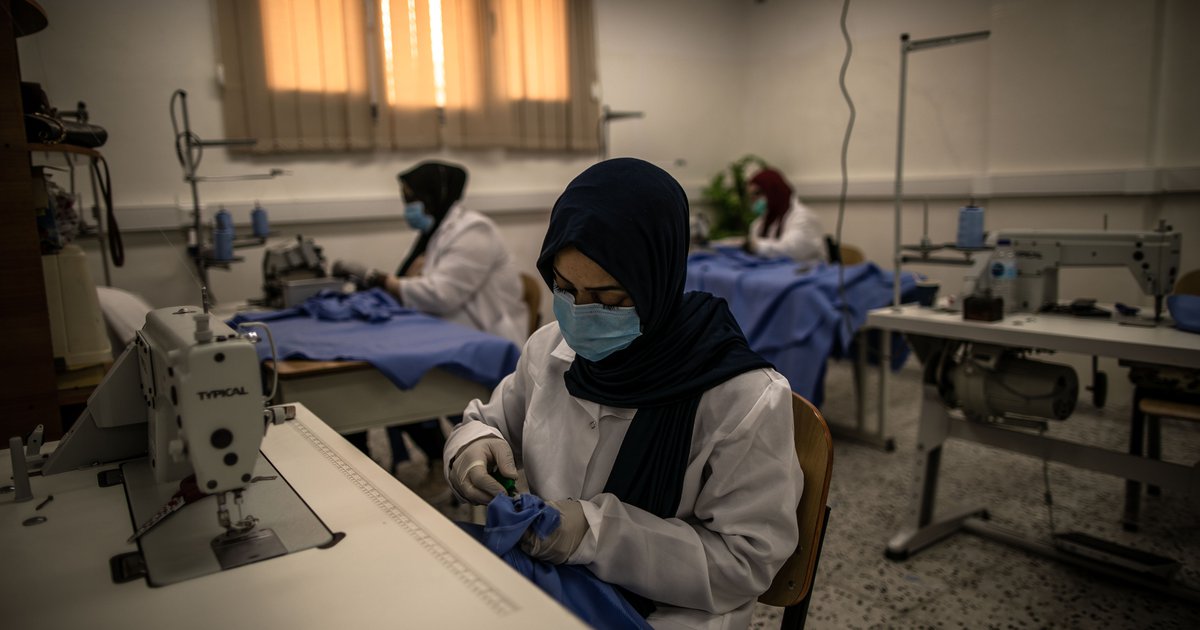
No response or action was taken towards this letter. There has been no humanitarian assistance or compensation provided for the female internally displaced or an assessment for those at risk of losing their livelihoods because of the pandemic. Add to that the lack of any consideration to address the rise in gender-based violence. In fact, within the first weeks of the lock down, three women were reported murdered by their partners across the country. There are no official mechanisms to report domestic violence, a taboo topic that is not widely discussed in Libya. Women who are at risk at home have nowhere to turn and now even less resources to seek help elsewhere.
On the other hand, the presidential council proceeded to reduce salaries (excluding their own of course) as part of austerity measures due to the oil blockade and the lock down. According to Hala Bugaighis, women working in the so-called pink-collar jobs, are paid less than men and are more likely to lose their jobs since men’s labour is more valued in the workforce. This may significantly impact the migrant community in Libya, especially female migrants and refugees who are likely to be most severely affected.
Women taking measures in their own hands
Despite the significant shrinking of civil society space since 2014, non-governmental organizations are unremitting in their service delivery, often in partnership with municipalities. Civil society organizations often lack the resources to implement their own responses, however many have begun voluntary independent initiatives. There are now multiple online campaigns such as Quarantine and Don’t overburden yourself to raise awareness on COVID-19 and its gendered impact, flagging the rising incidents of domestic violence and providing legal consultations to the survivors and assisting women who are in need.
Women who run small businesses have been impacted negatively by the pandemic. However, some women who run sewing workshops and fashion houses have proven inspirational in their local communities by manufacturing medical equipment needed for the hospitals. Another example is the work carried out by Lybotics who printed 3D medical masks. Libyan civil society has remained flexible, with very little heed from the state.
Government policies tend to ignore civil society despite their direct contact with the communities in need, and therefore are able to assess potential risks and mitigation measures better. Due to the very gendered nature of the Libyan conflict, women are particularly missing from the picture since they are not fighting and are not represented in the government. Due to lack of communication channels between the decision makers and CSOs, their work is largely missing from policies. The government should establish regular communication channels to consult CSOs and particularly women.
The pandemic’s implications are very tangible, warring factions and their foreign backers must stop all hostilities not only to come up with a solution to the conflict but also to face the immense economic and social challenges COVID-19 poses on Libya. Now more than ever, the country needs everyone’s contribution to survive the upcoming changes.
"conflict" - Google News
May 14, 2020 at 01:09PM
https://ift.tt/2Aj7NVp
Libya's forgotten half: between conflict and pandemic, women pay the higher price - Open Democracy
"conflict" - Google News
https://ift.tt/3bZ36xX
https://ift.tt/3aYn0I8
Bagikan Berita Ini














0 Response to "Libya's forgotten half: between conflict and pandemic, women pay the higher price - Open Democracy"
Post a Comment